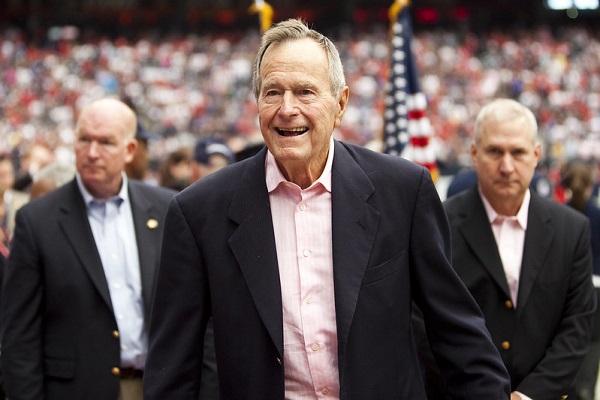
–>
May 16, 2022
Mark Hemingway wrote a fascinating exposé chronicling the enigmatic life of Stefan Halper, the Cambridge University professor and FBI informant who attempted to entrap low-level Trump campaign associates with promises that “his friendship with Russian spies” could aid Trump’s efforts to win the presidency. Hemingway notes that although most Americans were unfamiliar with Halper until details of the FBI’s Crossfire Hurricane counterintelligence operation against the Republican presidential nominee came to light, he has been a stubbornly recurring fixture near the intersection of American politics and espionage for fifty years.
‘); googletag.cmd.push(function () { googletag.display(‘div-gpt-ad-1609268089992-0’); }); }
The man who failed to ensnare George Papadopoulos, Carter Page, and Sam Clovis in the FBI’s efforts to seek and find Trump-Russia “collusion” in the run-up to the 2016 election not only achieved professional success in the ’70s and ’80s after marrying the daughter of the former director of the Directorate of Intelligence (the second-highest ranking intelligence officer at the CIA), but was also peripherally connected to both an alleged spying operation against Jimmy Carter and bank accounts linked to the Iran-Contra Affair. Tracking Halper from his employment in the Nixon administration to his mysteriously lucrative remuneration from the Department of Defense just last decade, Hemingway catalogues the professor’s résumé discrepancies, uncertain roles in numerous political scandals, and timely professional pivots. Ultimately, he concludes that the more we learn about Stefan Halper, the less we really know.
Although Hemingway succeeds in providing substantially richer detail regarding the professional exploits of Stefan Halper, one interesting story worth noting is left out. In the 1980 presidential contest between Ronald Reagan and Jimmy Carter, Halper allegedly played an instrumental role in belatedly securing for George H.W. Bush a spot on the Republican ticket. Richard V. Allen, Reagan’s chief foreign policy adviser in the late ’70s and his first national security adviser after President Reagan took office, recounted the whole tale in great detail in a July 30, 2000 article for The New York Times Magazine entitled “George Herbert Walker Bush: The Accidental Vice President.”
As Allen tells the story, Reagan’s choice of Bush as his vice presidential running mate came late in the evening of the third night of the 1980 Republican convention, less than half an hour before Reagan took to the podium at the Joe Louis Arena in Detroit and accepted the Republican Party’s nomination for president. Stefan Halper, it seems, was a critical middleman making that unexpected turn of events possible. Without his efforts, George H.W. Bush may have never gotten the nod. As Allen points out in his NYT Magazine article published the summer before George W. Bush’s election later that year, “[i]t’s also possible that the Republicans might have a different candidate today.”
‘); googletag.cmd.push(function () { googletag.display(‘div-gpt-ad-1609270365559-0’); }); }
Allen kept written notes recording the minute-to-minute details of that night in the Detroit Plaza Hotel when the choice for vice president was made, and his account provides a rare glimpse back to an important moment in American history. He describes arriving in Reagan’s suite at 5:30 in the evening and being “the only person to remain in Reagan’s presence throughout the adventure” that led to Bush’s selection. Upon his arrival, former president Gerald Ford was exiting Reagan’s rooms, all but confirming for Allen that rumors of a Reagan-Ford ticket were true. He quickly learned that a small group of Reagan confidants were negotiating a possible Executive Branch power-sharing arrangement with former secretary of state Henry Kissinger, who was representing Ford in the discussions. At one point, there was even consideration of acceding to Ford’s “demands … to be ‘chairman’ of the National Security Council.” Allen remembers telling Reagan, “That is the craziest deal I have ever heard of.” From his point of view, Reagan’s nomination was a “de facto indictment” against the foreign policy of the Nixon, Ford, and Carter administrations, making a unity ticket with Ford “unthinkable.” So Allen “did something rash” and “decided to try to contact George Bush.”
In order to keep his efforts quiet, since many of Reagan’s advisers “viewed Bush as a liberal” and remained “against him … even contemptuous,” Allen reached out to — surprise, surprise! — Stefan Halper, who was working as Bush’s director of policy development, a job he had apparently secured due to the recommendation of his father-in-law. Allen instructed Halper “in as circumspect a manner as possible, to seek Bush’s assurance that he could support the platform ‘with no exceptions.'” In other words, Allen wanted Halper to confirm whether Bush would “abandon his support for abortion and his opposition to supply-side economics” in order to join the Republican ticket. Roughly twenty minutes later, Halper called back to confirm that Bush was on board.
With Halper’s guarantees (and a second confirmation from Allen’s friend, Richard Fairbanks, who was also close to Bush), Allen then spent the next four hours waiting for the right “opportunity” to push Bush’s candidacy. When he found an “opening,” he “informed Reagan that Bush had given unequivocal assurances that he could embrace and defend the entire platform.” When negotiations with Kissinger and Ford broke down around 11:30 that night, Reagan ended them for good. Glancing around his room of advisers, Reagan asked, “Well, what do we do now?” When nobody offered any suggestions, Allen took his chance: “We call Bush.” After looking around the room for objections and seeing none, Reagan agreed: “Well, let’s get Bush on the phone.” A little after midnight, Ronald Reagan took the stage at the convention center in Detroit and announced George Bush as his running mate.
So it was that the mysterious Stefan Halper once again found himself smack-dab in the middle of a crossroads in American history whose consequences reverberate to this day. If not for Halper’s actions as political intermediary for Allen in Bush’s camp, it is an open question as to whether either Bush presidency would have followed Reagan’s. As one of the most prominent Republican families vocally opposed to the presidency of Donald Trump, it is equally interesting to consider how the Republican Party would have naturally evolved after Reagan’s presidency had Bush Sr. not become heir apparent.
As Allen wrote, “George Bush was picked at the very last moment and largely by a combination of chance and some behind-the-scenes maneuvering.” In that “maneuvering,” Stefan Halper played a prime role.

Image: AJ Guel via Flickr, CC BY 2.0.
‘); googletag.cmd.push(function () { googletag.display(‘div-gpt-ad-1609268078422-0’); }); } if (publir_show_ads) { document.write(”
<!– if(page_width_onload <= 479) { document.write("
“); googletag.cmd.push(function() { googletag.display(‘div-gpt-ad-1345489840937-4’); }); } –> If you experience technical problems, please write to helpdesk@americanthinker.com
FOLLOW US ON
<!–
–>
<!– _qoptions={ qacct:”p-9bKF-NgTuSFM6″ }; ![]() –> <!—-> <!– var addthis_share = { email_template: “new_template” } –>
–> <!—-> <!– var addthis_share = { email_template: “new_template” } –>





